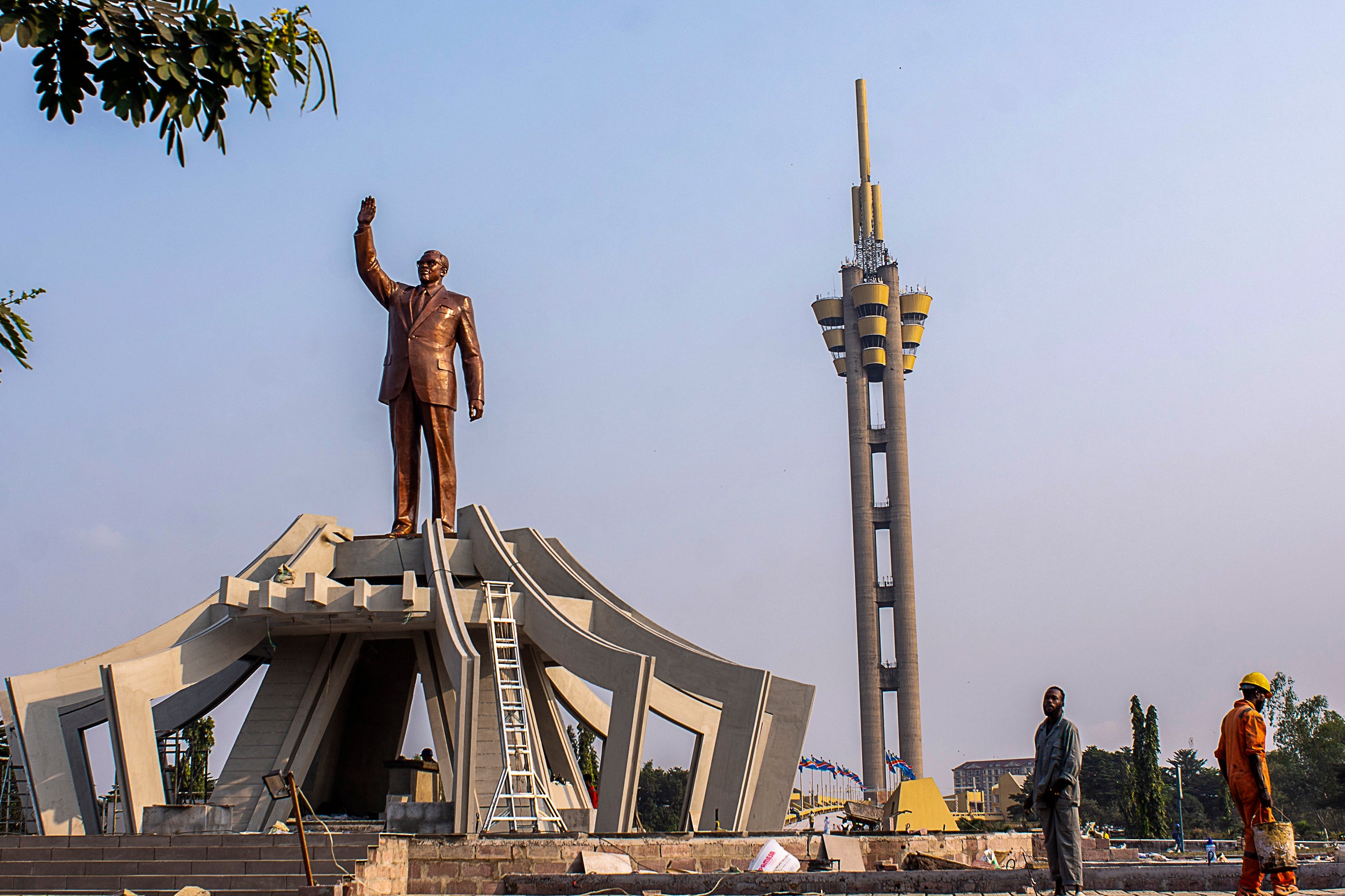Congolese police arrest 6 suspects over break-in into mausoleum of late independence hero Lumumba
Congolese police have arrested six people over a break-in and vandalism earlier this week at the mausoleum of the country’s assassinated independence leader Patrice Lumumba in Congo’s capital, Kinshasa

Your support helps us to tell the story
From reproductive rights to climate change to Big Tech, The Independent is on the ground when the story is developing. Whether it's investigating the financials of Elon Musk's pro-Trump PAC or producing our latest documentary, 'The A Word', which shines a light on the American women fighting for reproductive rights, we know how important it is to parse out the facts from the messaging.
At such a critical moment in US history, we need reporters on the ground. Your donation allows us to keep sending journalists to speak to both sides of the story.
The Independent is trusted by Americans across the entire political spectrum. And unlike many other quality news outlets, we choose not to lock Americans out of our reporting and analysis with paywalls. We believe quality journalism should be available to everyone, paid for by those who can afford it.
Your support makes all the difference.Congolese police have arrested six people over a break-in and vandalism earlier this week at the mausoleum of the country's assassinated independence leader Patrice Lumumba in Congo’s capital, Kinshasa.
During the break-in on Monday, a case containing a single gold-capped tooth — the only part of the former leader that remained after his assassination — was broken by the vandals, according to authorities. It wasn't immediately clear what happened to the tooth.
Police announced the six arrests late Wednesday and said they were still looking for two more suspects.
Jacquemin Shabani, the country's interior minister, told reporters that Lumumba's tooth was not damaged during the break-in.
“We assure that the relic is secure and it is protected,” the minister said, without offering more information.
The return of Lumumba’s tooth from former colonizer Belgium in 2022 had been celebrated around Congo, with the tooth taken around the vast country so people could pay their respects.
“We are happy that the perpetrators of this act have been arrested,” Jean-Jacques Lumumba, one of Lumumba’s grandsons, told The Associated Press over the phone.
“But we regret that the mausoleum has been abandoned by the country’s authorities," he added. "What is certain is that the relic is in a very secure place that we cannot name at this time.”
Lumumba is widely hailed as the nationalist activist who helped end colonial rule. He became Congo’s first prime minister and was seen as one of Africa’s most promising new leaders, but he was assassinated within a year in 1961.
His body was dismembered and dissolved with acid in an apparent effort to keep any grave from becoming a pilgrimage site.
For many in Congo, Lumumba is a symbol of the positive developments the country could have achieved after its independence. Instead, it became mired in decades of dictatorship that drained its vast mineral riches.
A military coup toppled Lumumba, who was arrested, jailed and later killed. His assassination, blamed on separatists, cleared the way for the rise of Mobutu Sese Seko, who ruled the country he later renamed Zaire for decades with support from Western powers until his death in 1997.
Even though Lumumba’s killers were Congolese, questions have persisted over the complicity of Belgium and the United States because of his perceived Communist ties.
His one remaining tooth was kept by the Belgian police commissioner who oversaw the destruction of his body. In 2016, the tooth was seized by Belgian officials from the police commissioner’s daughter.
The tooth was returned to Congo after the visit of Belgium’s King Philippe, who expressed regrets for his nation’s abuses in Congo when it was a Belgian colony.